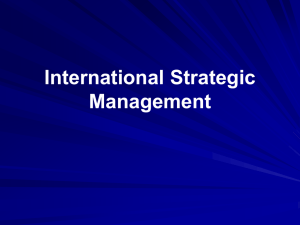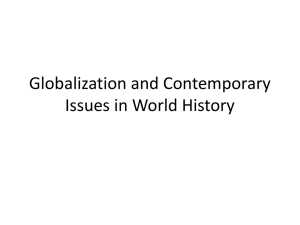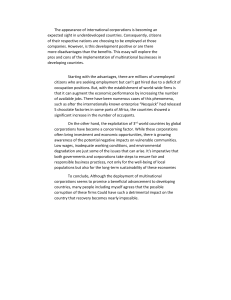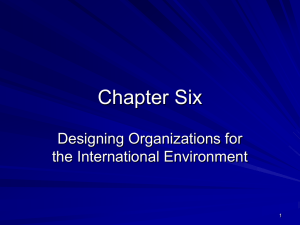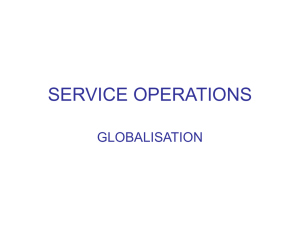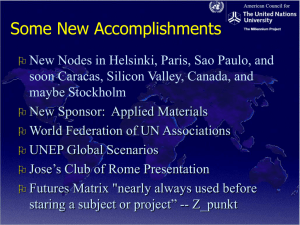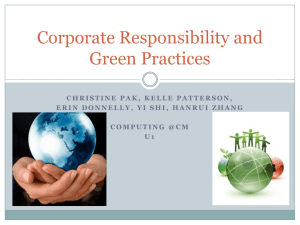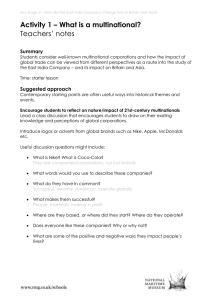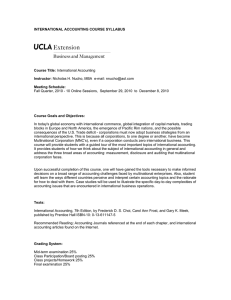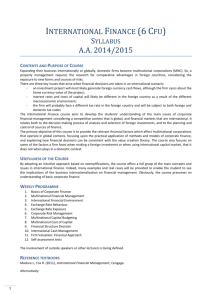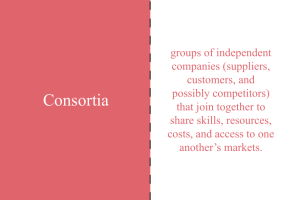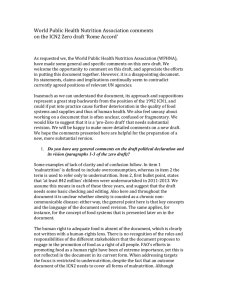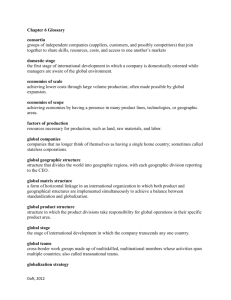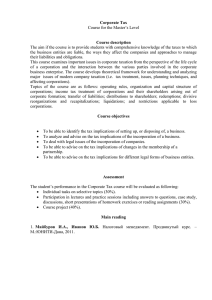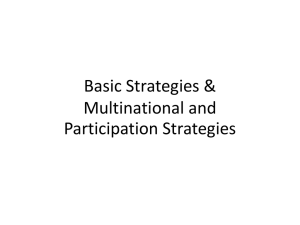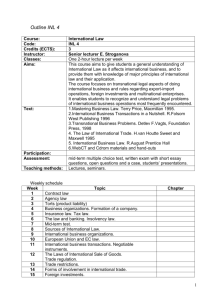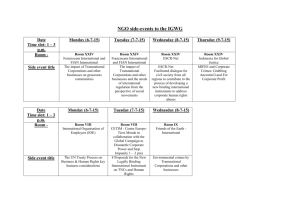Omnipotent view of management: the view that managers are
advertisement
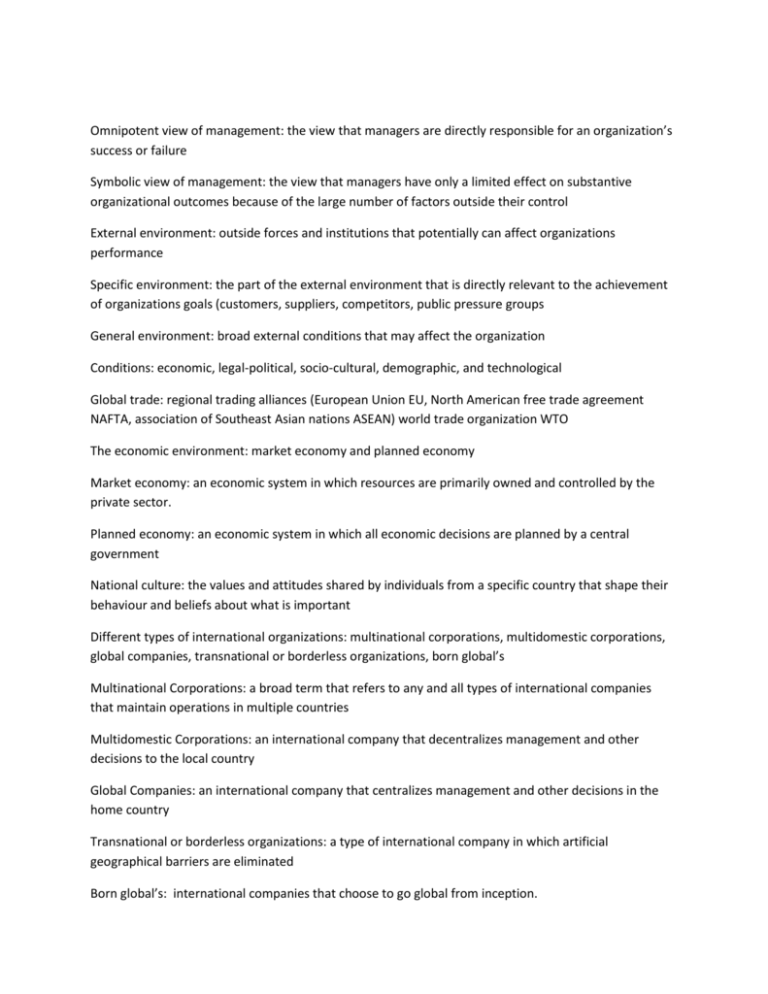
Omnipotent view of management: the view that managers are directly responsible for an organization’s success or failure Symbolic view of management: the view that managers have only a limited effect on substantive organizational outcomes because of the large number of factors outside their control External environment: outside forces and institutions that potentially can affect organizations performance Specific environment: the part of the external environment that is directly relevant to the achievement of organizations goals (customers, suppliers, competitors, public pressure groups General environment: broad external conditions that may affect the organization Conditions: economic, legal-political, socio-cultural, demographic, and technological Global trade: regional trading alliances (European Union EU, North American free trade agreement NAFTA, association of Southeast Asian nations ASEAN) world trade organization WTO The economic environment: market economy and planned economy Market economy: an economic system in which resources are primarily owned and controlled by the private sector. Planned economy: an economic system in which all economic decisions are planned by a central government National culture: the values and attitudes shared by individuals from a specific country that shape their behaviour and beliefs about what is important Different types of international organizations: multinational corporations, multidomestic corporations, global companies, transnational or borderless organizations, born global’s Multinational Corporations: a broad term that refers to any and all types of international companies that maintain operations in multiple countries Multidomestic Corporations: an international company that decentralizes management and other decisions to the local country Global Companies: an international company that centralizes management and other decisions in the home country Transnational or borderless organizations: a type of international company in which artificial geographical barriers are eliminated Born global’s: international companies that choose to go global from inception. Licensing: an approach to going global in which a manufacturer gives another organization the right to use its brand name, technology, or product specifications Franchising: an approach to going global in which a service organization gives a person or group the right to sell a product, using specific business methods and practices that standardized Strategic Alliance: an approach to going global that involves a partnership between a domestic and foreign company in which both share resources and knowledge in developing new products or building production facilities. Foreign Subsidiary: an approach to going global that involves a direct investment in a foreign country by setting up a separate and independent production facility or office. Joint venture: an approach to going global in which the partners agree to form a separate, independent organization for some business purpose: it is a type of strategic alliance Environmental uncertainty: the degree of change and the degree of complexity in an organizations environment. Environmental complexity: the number of components in an organizations environment and the extent of the organizations knowledge about those components Stakeholders: any constituencies in the organizations external environment that are affected by the organizations decisions and actions Shareholders: individuals or companies that own stocks in a business
